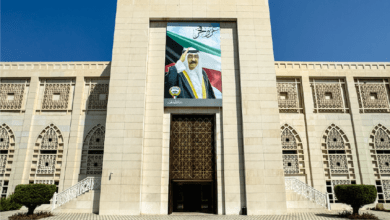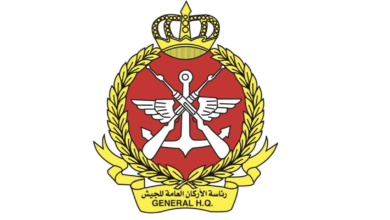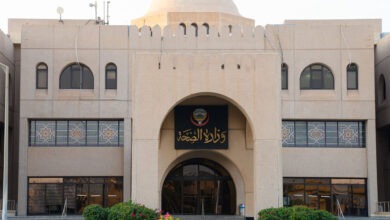MOI unveils strategic plan to boost security, modernize laws, and support Vision 2035
Ministry of Interior is committed to advancing national security, improving legal and administrative systems, and supporting Kuwait’s broader development goals -- Brigadier General Bouslaib
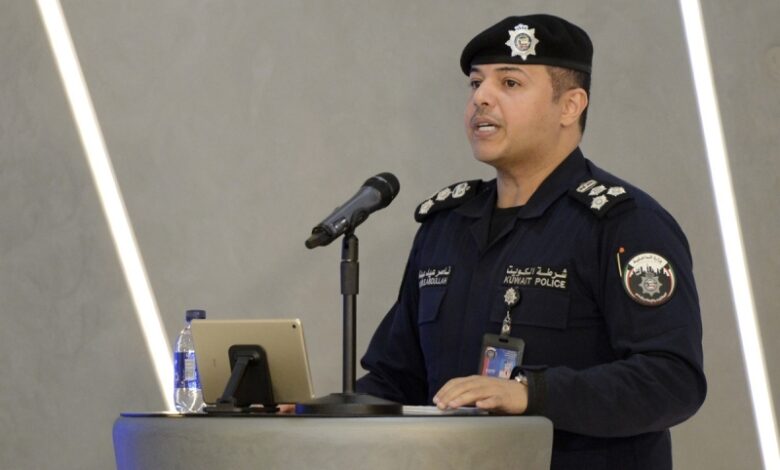
Brigadier General Nasser Bouslaib, Director General of the Public Relations and Security Media Department at the Ministry of Interior and the official spokesperson for the Ministry, announced that the Ministry’s 2025 strategic plan is designed to keep pace with evolving social, economic, and technological changes. This forward-looking approach aims to enhance the Ministry’s capacity to respond to emerging challenges and support the realization of the “New Kuwait 2035” vision.
Speaking during a presentation at the Government Communication Center titled “Laws – Numbers – Achievements 2025,” Brigadier General Bouslaib outlined key pillars of the plan. He reviewed recent amendments to the Traffic and Residency Laws, as well as the ongoing work to update the Narcotics and Psychotropic Substances Law. He also highlighted the Ministry’s progress in digital transformation and the significant advancements in various departments, reports Al-Rai daily.
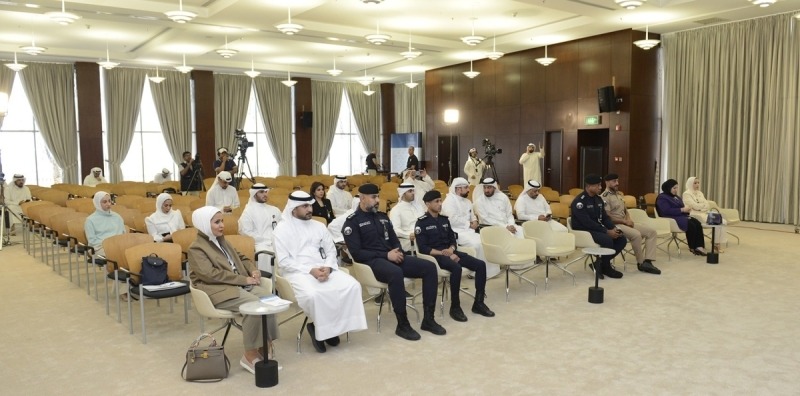
He stated that the Ministry is committed to promoting justice, safeguarding the rights of citizens and residents, and eliminating legal loopholes. These measures aim to reinforce equality and prevent exploitation. The strategic plan also seeks to create a secure and appealing environment for both local and foreign investors, thereby encouraging capital inflows into national development projects and boosting the tourism sector. Additionally, the plan involves tightening legal safeguards to protect lives and property, while leveraging modern technologies to raise overall security standards.
Bouslaib paid special attention to the Biometric Fingerprint Project, through which Kuwait has collected over 16.3 million civil fingerprints from citizens, residents, and visitors. The Ministry has also developed a comprehensive biometric database encompassing 5.38 million individuals, including citizens, residents, illegal residents, and visitors. This project aims to modernize personal security systems and streamline coordination between government entities. It also minimizes paperwork and accelerates procedures for the public.
The biometric initiative, according to Bouslaib, has significantly reduced identity document fraud, enhanced operational efficiency at border crossings and airports, and enabled authorities to better track fugitives and deportees. As a result, it has contributed meaningfully to crime prevention and public safety.
Turning to the digital transformation, he noted that the Ministry currently offers 37 e-services through the unified “Sahel” government application. These services allow residents and citizens to complete various transactions electronically without needing in-person visits. So far, over 30.8 million electronic transactions have been processed via the platform, and additional services are expected to be added soon.
Bouslaib emphasized the remarkable transformation in the Residency Affairs Departments following digital upgrades and legal reforms. The amended Residency Law now aligns with labor market demands, strengthens economic development, ensures protection of workers’ rights, and defines clear obligations for all parties. These measures also help combat human trafficking by introducing strict penalties for violations.
The Director General also highlighted the recent launch of the electronic visa system (KUWAIT VISA), which now facilitates the issuance of various types of visas, including tourist, family, business, and official government visas.
On the issue of drug enforcement, Bouslaib explained that the Ministry is currently finalizing a revised Narcotics and Psychotropic Substances Law. The updated legislation aims to combat the trafficking and abuse of drugs through more severe penalties.
It also provides law enforcement with enhanced powers to dismantle organized drug networks and includes measures for prevention, treatment, and social reintegration of addicts. In 2024, 39 deaths were attributed to drug abuse. In the first half of 2025 alone, authorities recorded 1,451 drug-related cases, 261 addiction complaints, and 11 related deaths involving 1,864 accused individuals.
He also detailed recent improvements in the Coast Guard’s operational capacity through the deployment of smart, unmanned marine vessels. These high-tech boats are capable of sustained missions without human crews and are used for surveillance, tracking suspicious activity, search and rescue operations, environmental monitoring, and maritime security enforcement within Kuwait’s territorial waters.
Bouslaib went on to discuss the amendments to the Traffic Law, which aim to reduce accidents by enforcing stricter penalties for violations such as speeding and running red lights. These legal changes are supported by advanced technology, including artificial intelligence cameras and smart monitoring tools. The reforms have successfully promoted safer driving habits. In 2024, Kuwait saw an average of 300 daily traffic accidents, with 90 percent linked to driver distraction. Since enforcement of the new law began on April 22, speeding and red-light violations have dropped by 83 percent, seatbelt and mobile phone violations by 75 percent, and traffic-related deaths by 55 percent.
In addition, Bouslaib addressed recent amendments to the Kuwaiti Flag Law, which came into effect on June 8. The revisions are designed to safeguard the dignity of the national flag and prevent its misuse. The law now restricts the display of foreign flags on private or public occasions without prior approval from the Minister of Interior, with exceptions made during international sports tournaments hosted in Kuwait.
It also bans the continuous display of the national flag on private buildings, the use of the flag for commercial or advertising purposes, and the raising of damaged or improperly maintained flags. Furthermore, it prohibits the display of flags or slogans with religious, sectarian, or tribal implications, except in the case of registered sports clubs.
Through these initiatives, Brigadier General Bouslaib affirmed the Ministry of Interior’s commitment to advancing national security, improving legal and administrative systems, and supporting Kuwait’s broader development goals.







